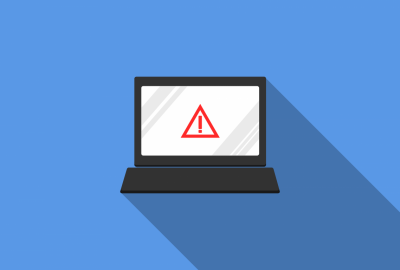 Something we must understand is that our current priority is to stay healthy and safe from COVID-19. And this should motivate you to apply a better productivity culture.
Something we must understand is that our current priority is to stay healthy and safe from COVID-19. And this should motivate you to apply a better productivity culture.
It is essential to learn, as a company, to develop a productivity culture that balances safety and productivity. For this, you need to foster a healthy relationship with your remote workers. Besides, your area leaders need to understand all aspects of their team’s lives.
Today, we will talk about everything you must review to promote a culture of productivity.
Empathy: the foundation of your productivity culture
The most important thing is to know that we live in a “new normal”. In this new world, communication and authenticity are vital for any company.
Yet, what does this mean? It means you should listen to what your employees tell you.
The most immediate concerns of many workers are latent insecurities within the company. For example: How can I protect my physical health and the health of my family? Will I have a job when this is all over?
You must emphasize empathic listening. You need to build trust in these uncertain times, and that requires honesty.
A good practice is to stop sweetening difficult news; this shows respect and resilience on your part and as a company. Also, keep your managers on board of what happens and doesn’t in the company. That will help them send better results.
Recognize your employees as individuals
In this new productivity culture, it is important to remain sensitive to variations in your team’s unique situations. A clear example is the quarantine protocols, which vary by country. For this reason, your international employees may suffer from different problems.
You must stay in tune with individual needs, particularly of those who struggle or feel unmotivated. It is not about using only traditional communication tools; it’s about making them know you’re there, and that they have a space to talk freely and ask questions.
Find the balance between safety and productivity
During this crisis, we cannot forget the general panorama of the company. A good way to do this is to direct the efforts of security teams to internal services.
Your second priority should be customer value; With this, you mitigate risk and obstacles for your organization. Plus, you help the IT team keep deliveries secure and asset security at the forefront.
Weighing the Risk-Benefit relationship in your productivity culture
 Avoid exaggeration at one point and focus on what can help the company. For example, forced password rotation (a recommended practice in past years) is now obsolete.
Avoid exaggeration at one point and focus on what can help the company. For example, forced password rotation (a recommended practice in past years) is now obsolete.
Focus on vulnerability management: This offers you the greatest benefits in their discovery-solution relationship.
The difference between personal space and business space
Even applying all these strategies and practices, productivity hit in this climate is inevitable.
A common question now, and the focus of the problem, is: How do I make my personal space a “workspace”?
Your employees are keeping a schedule but suffer from limited space, shared Wi-Fi, and distractions. In this case, they must learn to negotiate the boundaries between their private and professional lives.
Some of your employees will have to juggle extra tasks. We mean babysitting their kids, home cleaning, or spending time with the family.
In these cases, parents can find someone to cover their busiest working hours in the morning. They then exchange that time to cover other chores when the children are taking a nap.
Your employees are also people
As contingency grows longer increases, so does our collective tolerance for shameful intrusions. We’ve all heard a dog bark at a Zoom meeting, for example.
Although this may be an anecdote for some or an embarrassing event for others, it presents an unexpected advantage. Now we can see aspects of people’s lives that we were previously unable to perceive.
Besides, there is another benefit to having members of each team help each other during the chaos. Without knowing it, they are reinforcing the productivity culture of the company in general. And this is because they see themselves more as humans who share a problem, rather than coworkers.
Your productivity culture focuses on the future
Something to understand is that, while working at reduced capacity, companies confront their priorities. This will allow you to be more critical about the essential elements of your business.
When you understand that not everything works against you, you will be able to prioritize. This way, it’ll be easier to separate the important from the urgent. Whether in marketing, product delivery, or customer retention; you must take this opportunity to innovate.
Discover skills you didn’t know you had
 The crisis also exposes hidden skill sets, giving some employees a chance to shine. Who is intensifying their work capacity? Who are our new leaders?
The crisis also exposes hidden skill sets, giving some employees a chance to shine. Who is intensifying their work capacity? Who are our new leaders?
Watch those who step forward and solve problems. Pay attention to those who cannot react. Realizing now who is reacting can help you discover and develop emerging talent.
Ultimately, all this contingency can grow your team and make it stronger.
Managing your time is crucial
New technologies allow you to use vulnerability scanning tools to analyze your weaknesses in real-time.
These tools can analyze all the processes that are happening in your networks and systems. This allows them to detect weaknesses, configuration errors, and attacks that can affect your network. All of this presents only benefits for yout productivity culture.
Plus, they run patches and configuration changes or do extra monitoring to get intruders out of your networks.
Acunetix: vulnerability scanning
The most important thing is not to be afraid to apply the appropriate automated solutions. For web vulnerability assessment and management software, we recommend taking a look at Acunetix.
This tool focuses on vulnerabilities. It is not a magic solution; It is a scanner engine that will allow you to better position your company in the aspect of its security.
If you want to know more about this tool, do not hesitate to contact us. We will let you know what you need to improve your IT environment.



